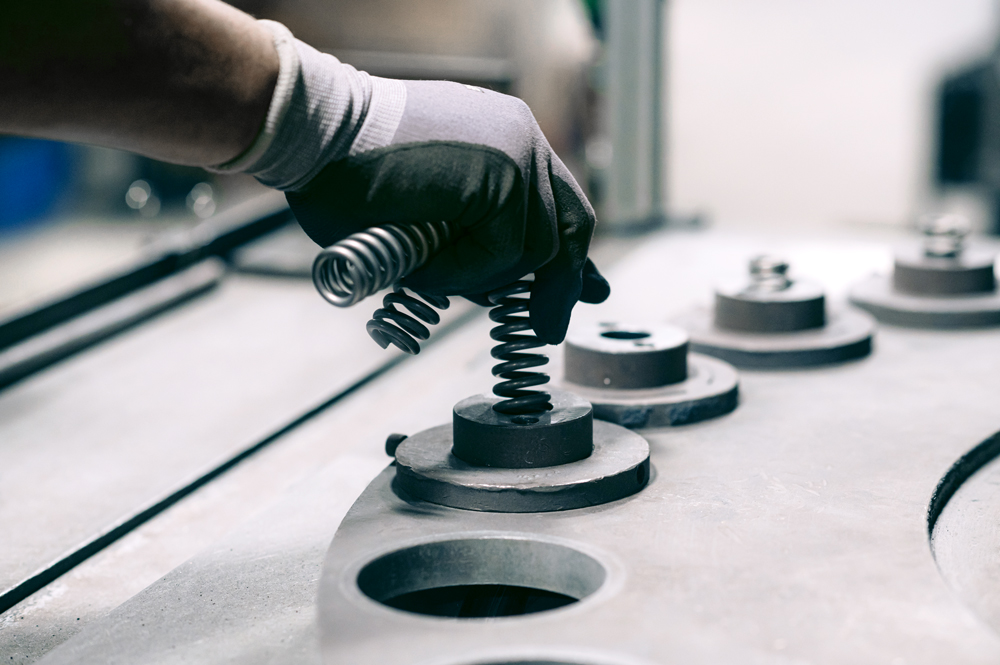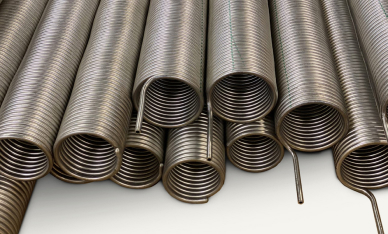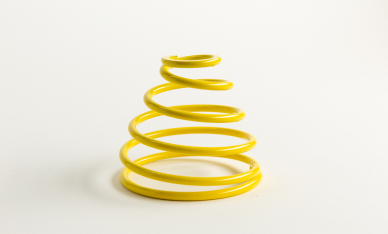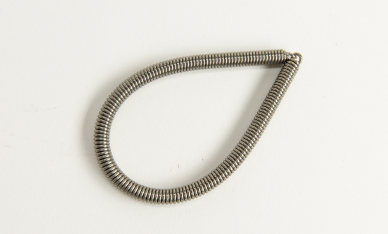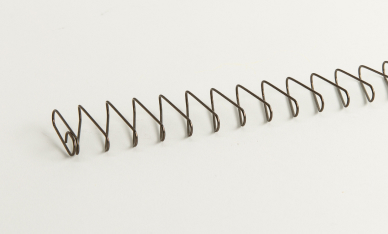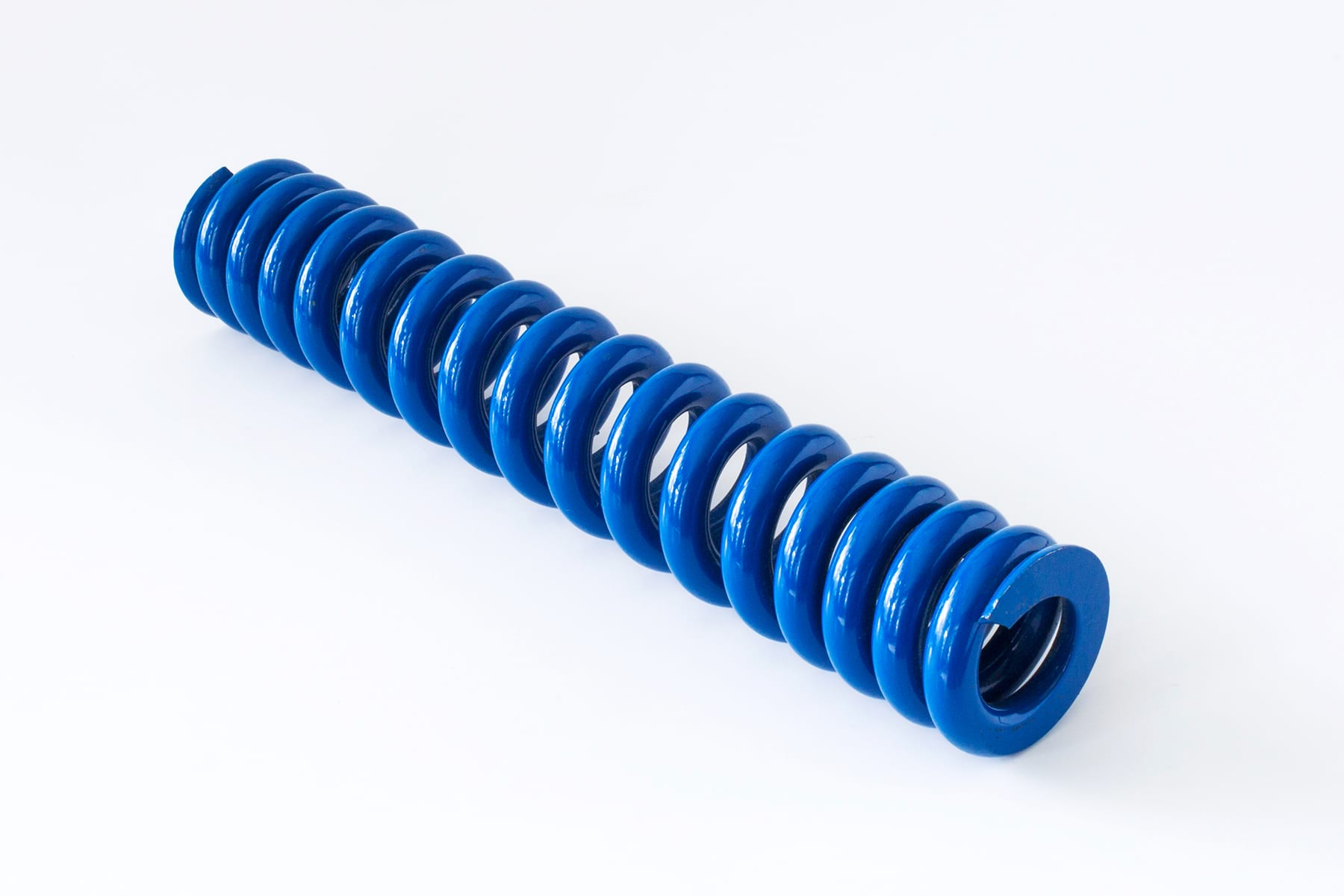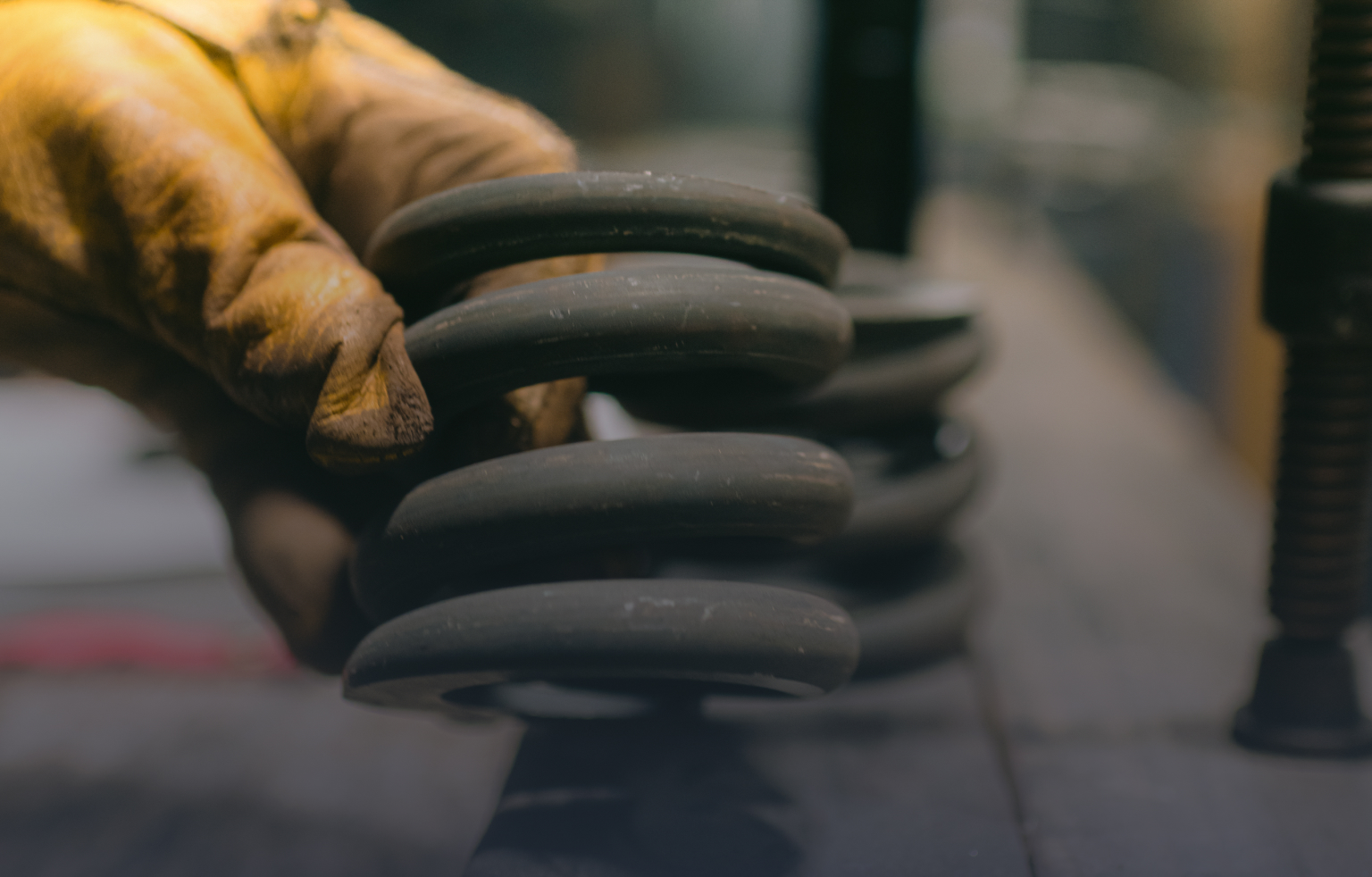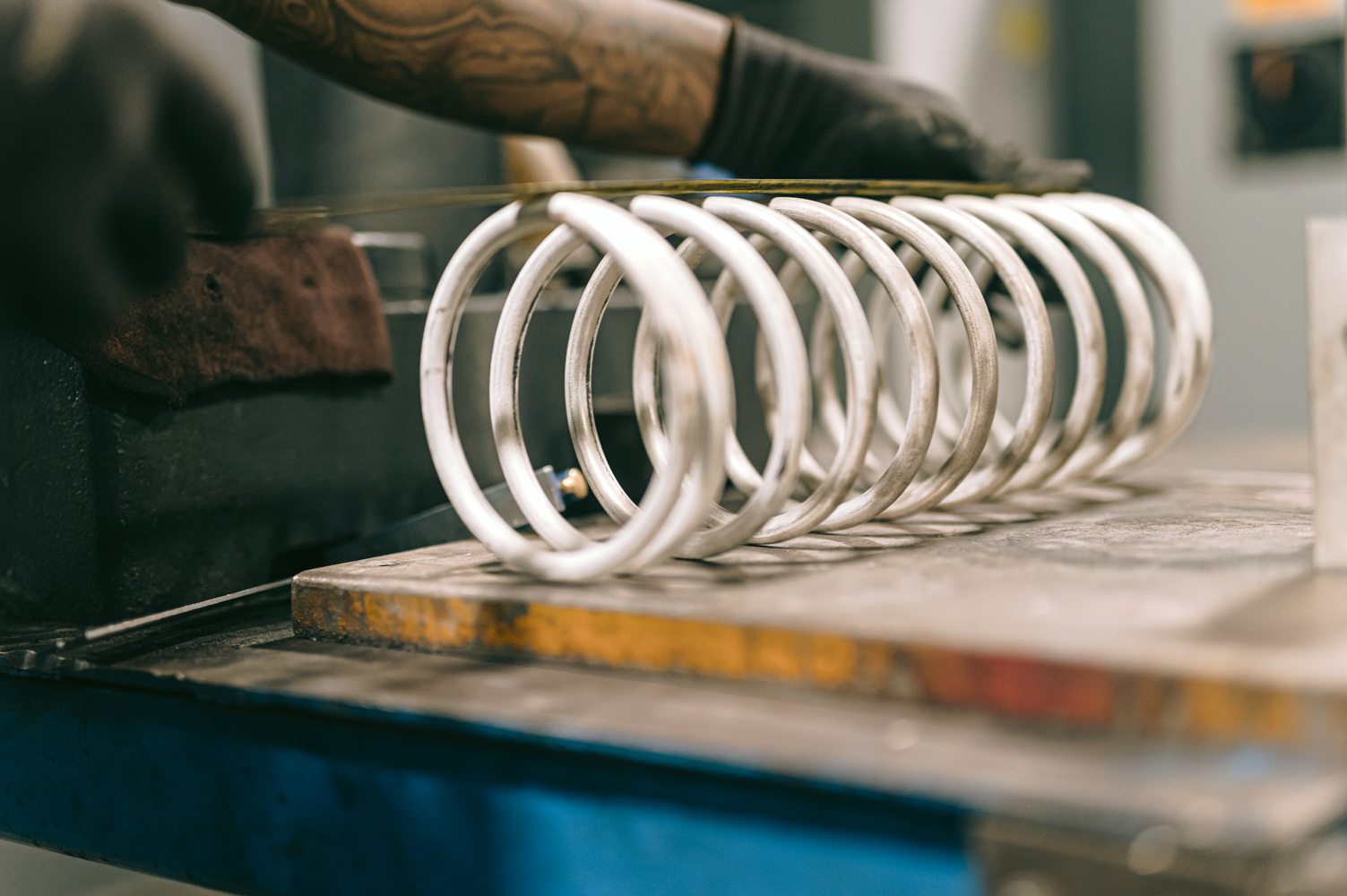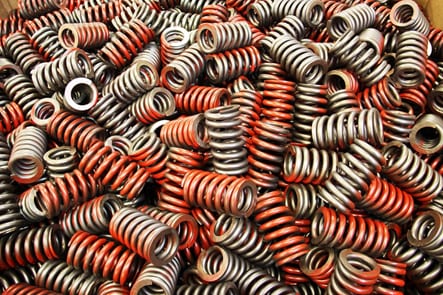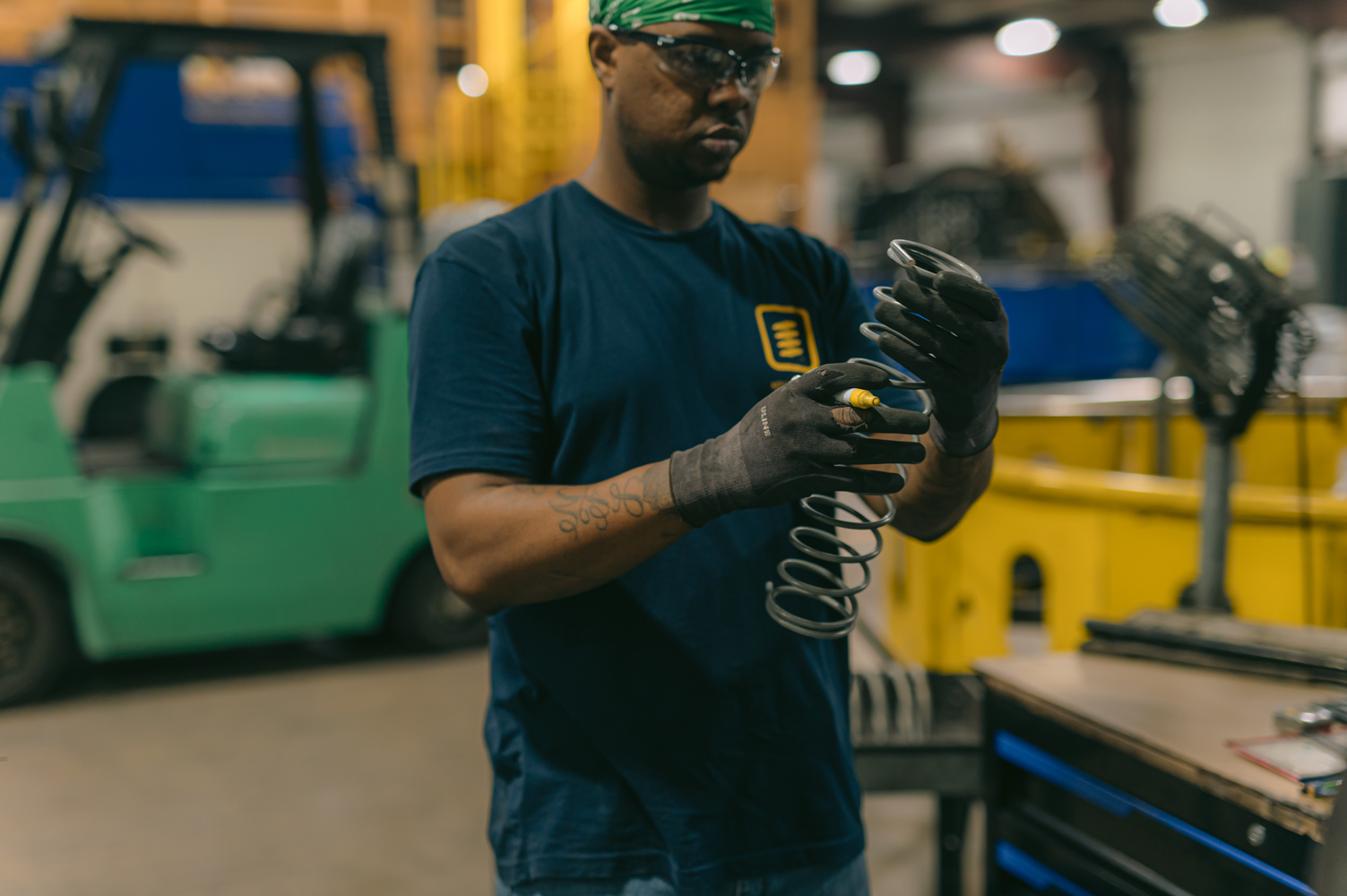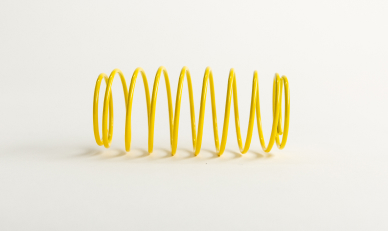Key Charactersitics
Shape and Design: Typically, compression springs are coiled helical springs made from round wire. They can also be made in other shapes, such as conical, barrel, or hourglass, to suit specific applications.
Material: Common materials used for compression springs include steel alloys, stainless steel, and high nickel alloys.
Benefits
Versatility: Suitable for a wide range of applications.
Durability: Made from strong materials to withstand repeated compression cycles.
Compactness: Can be designed to fit in limited spaces.
view product overview 

Order Custom Springs
The basic information needed by Katy Spring is material, wire size, free length, number of coils, travel, diameter, end types, finish, works over, works in, and maximum solid height.
- request a quote
- Questions? (281) 391-1888

Leaders in
custom springs
Regardless of the custom spring type, quantity, or size, the team at Katy Spring is ready and able to help deliver precision and quality quickly. Our smooth processes and extensive quality checks mean you’ll enjoy the approach just as much as the product. We’ve love to earn your business. Reach out today.
Katy Spring
Partners in Precision
Shape & Sizes
No matter the shape, size, or functionality, Katy Spring can help design a custom spring to fulfill your requirements.
Body Types
Cylindrical
Conical
Barrel
Hooked
Variable Pitch
Common Spring Materials
Carbon Steel
Alloy Steel
Stainless Steel
Nickel Alloys
Copper Alloys
Brass
product gallery
katy spring has manufactured over 10M springs made since 1999
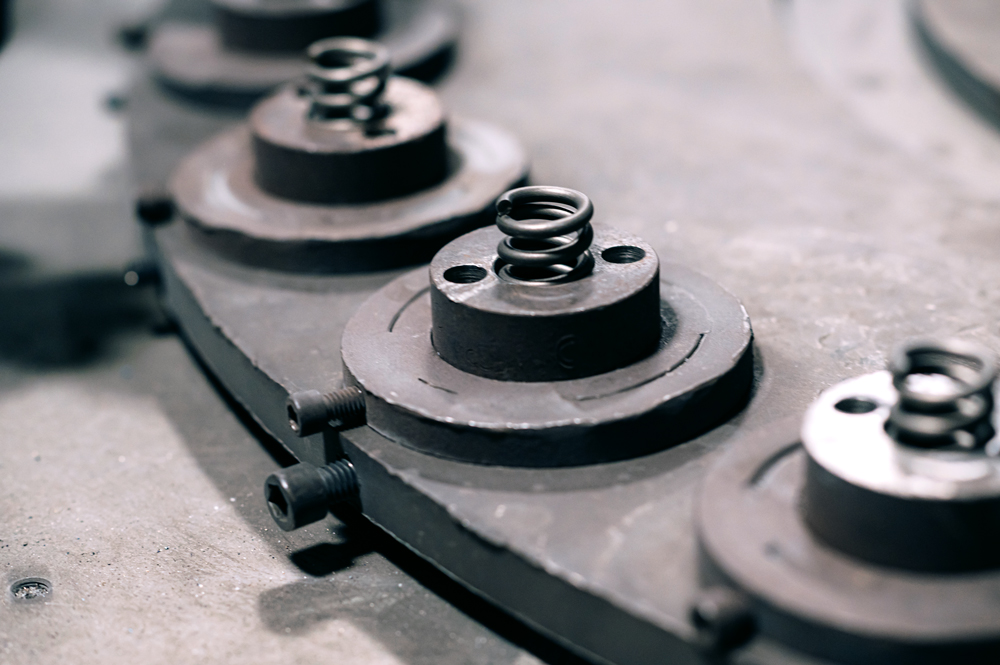
Celebrating 25 years of precision
quality + precision for over 25 years.
For over two decades we have delivered quality products made to the specifications of our customers. Our customers’ success is at the forefront, meaning every details matters to Katy Spring.
What our customers say

“ Definitively I will Katy Spring in our preferred list of spring supplier, excellence and fast quoting service.”

-
Héctor G.
Precision Tools

“ Spot on. Let me get in touch with our customer to see how they want to proceed. Thank you for the quick...”

-
Joe H.
Oil Rig Design Engineer

“ I have at least three more good volume items to quote. I will get those over to you. Your pricing has been...”

-
Marsha R
Engineered Valves
Need a quote? It’s quick and easy, start here:
Ordering Custom Compression Springs
- The normal squareness tolerance for ground ends is 2-3 degrees.
- Use conical compression springs when a short, solid height is needed to reduce buckling and surging.
- Leave the wind direction optional for compression springs. Use right-hand wound when the compression spring is being threaded on a bolt, or one right and one left when two springs are being used inside the other to avoid meshing coils.
- Make Katy Spring aware of the spring travel and any solid height requirements
- Specify a force with a tolerance (+/- 10 percent) at an exact compressed height rather than a definite deflection. Spring rate is the difference of two forces divided by the amount of deflection between those forces.
- Make Katy Spring aware of unusual conditions such as temperature, corrosive environments, impact force, and fatigue life.
- Specify the mandatory requirements only to Katy Spring, and leave the exact wire size and number of coils to the discretion of Katy Spring whenever possible.
Types of Compression Springs:
We offer many variations of springs for your project. Select one to learn more:
other springs we manufacture:

Extension Springs
An extension spring is a type of helical (coiled) spring designed to store energy and resist a pulling force. When extended, it exerts a return force to pull the components back together. These springs are used in various applications requiring tension, resistance, and the ability to return to a pre-determined position after being stretched.
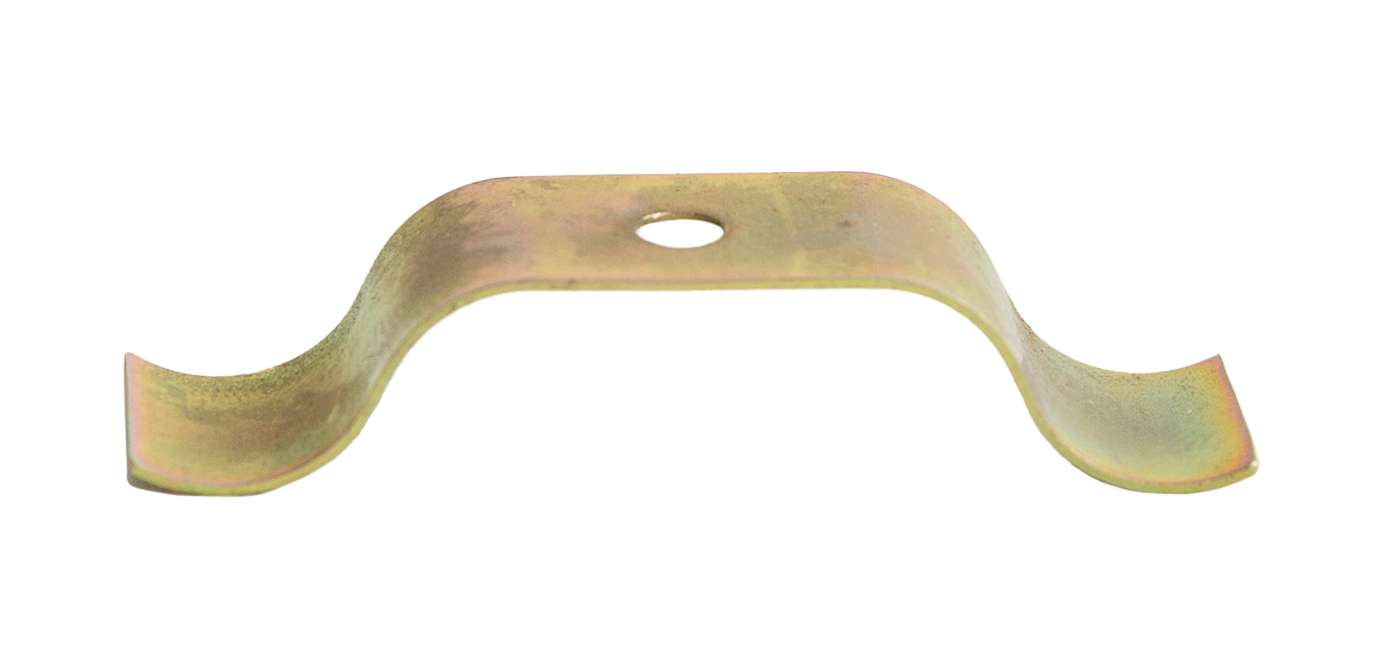
Flat Springs
A flat spring is a type of spring made from a flat, thin piece of metal or composite material. Unlike traditional coiled springs, flat springs are designed in a variety of shapes and sizes to store and release energy through bending or flexing. They are used in applications requiring precise force, flexibility, and a compact design.
- Nickel-silver
- -
- Beryllium-copper
- -
- Stainless steel
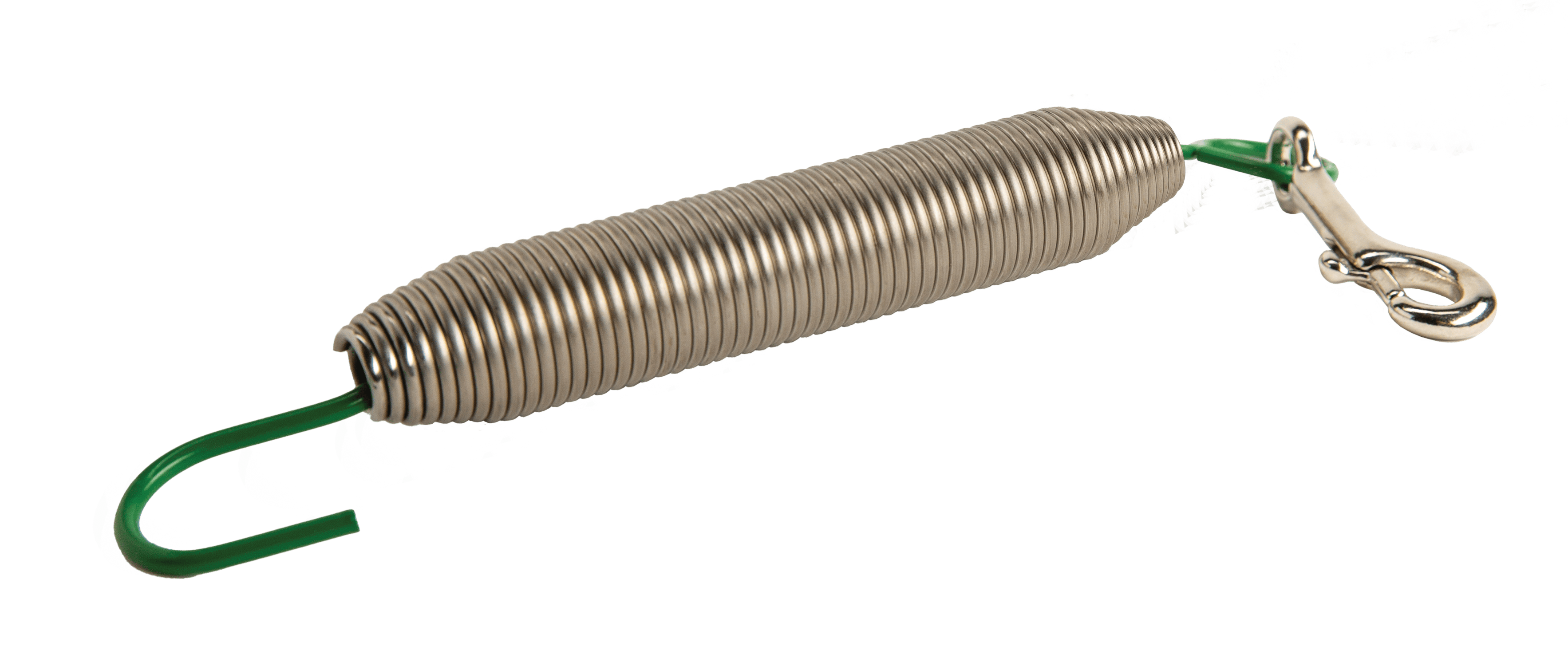
spring assemblies
Spring Assemblies are mechanical systems that incorporate springs to perform specific functions such as absorbing shock, maintaining tension, storing energy, or providing flexibility. These assemblies are crucial in many applications due to their ability to efficiently manage mechanical forces.
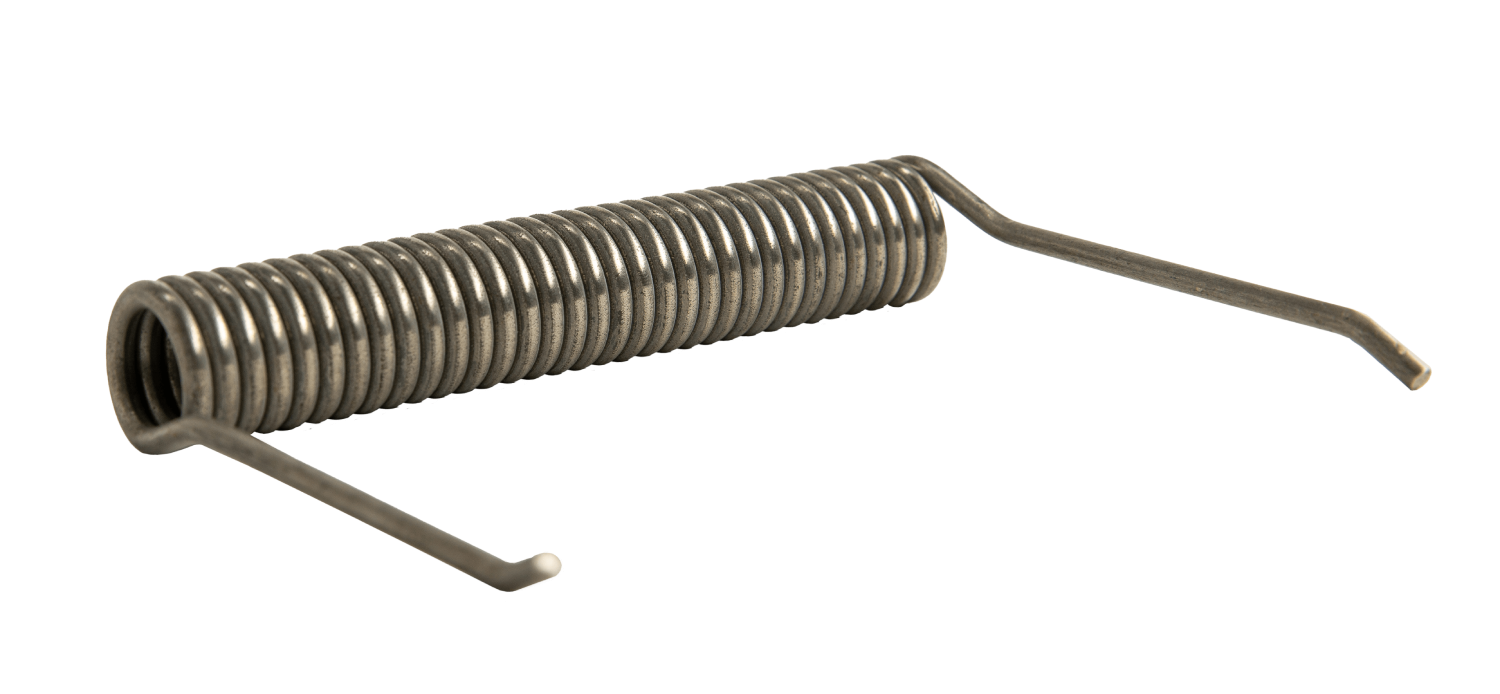
Torsion
A torsion spring is a type of helical spring that works by twisting its ends along its axis to exert a rotational or torque force. These springs are used in applications where rotational energy is required to maintain or return a component to its desired position.
©2024 All rights reserved. Site by AC
